Comparing sizes Measurement Worksheets for Ages 4-9
9 filtered results
-
From - To
Discover our engaging "Comparing Sizes Measurement Worksheets" designed specifically for children ages 4 to 9! These interactive worksheets help young learners grasp essential measurement concepts by comparing various objects and their sizes. Perfect for reinforcing math skills, our resources encourage critical thinking and hands-on practice. From sorting items by height and length to identifying which objects are bigger or smaller, kids will enjoy fun activities that make learning about measurements exciting! With colorful illustrations and kid-friendly language, these worksheets are ideal for classroom settings and at-home learning. Prepare your child for future math successes with our comprehensive measurement resources today!
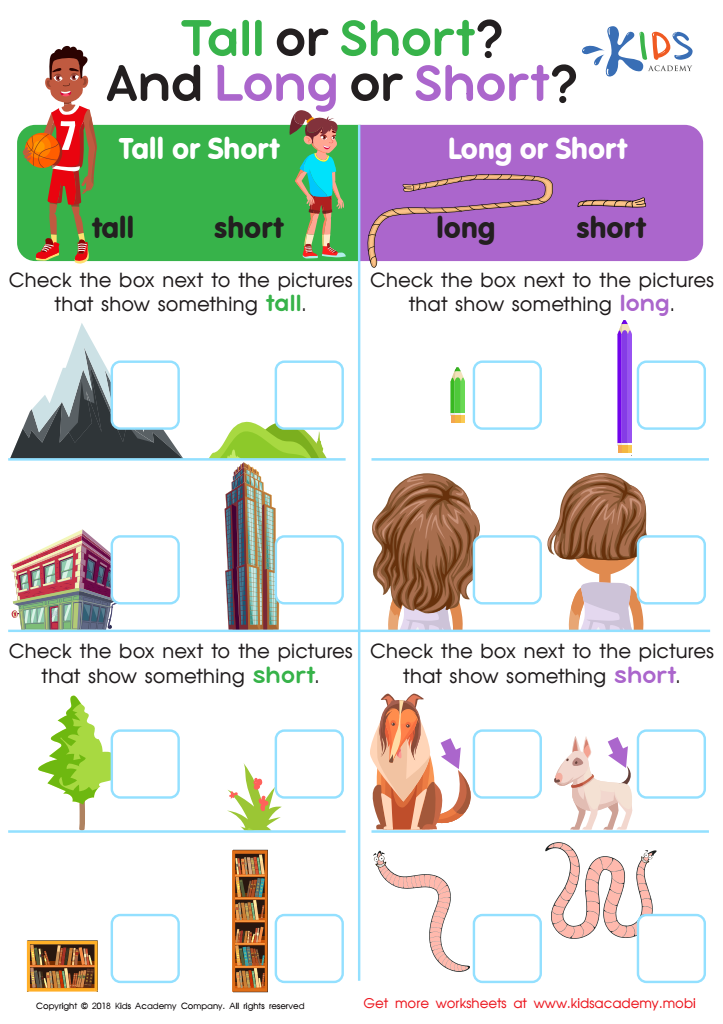

Tall or Short and Long or Short? Worksheet
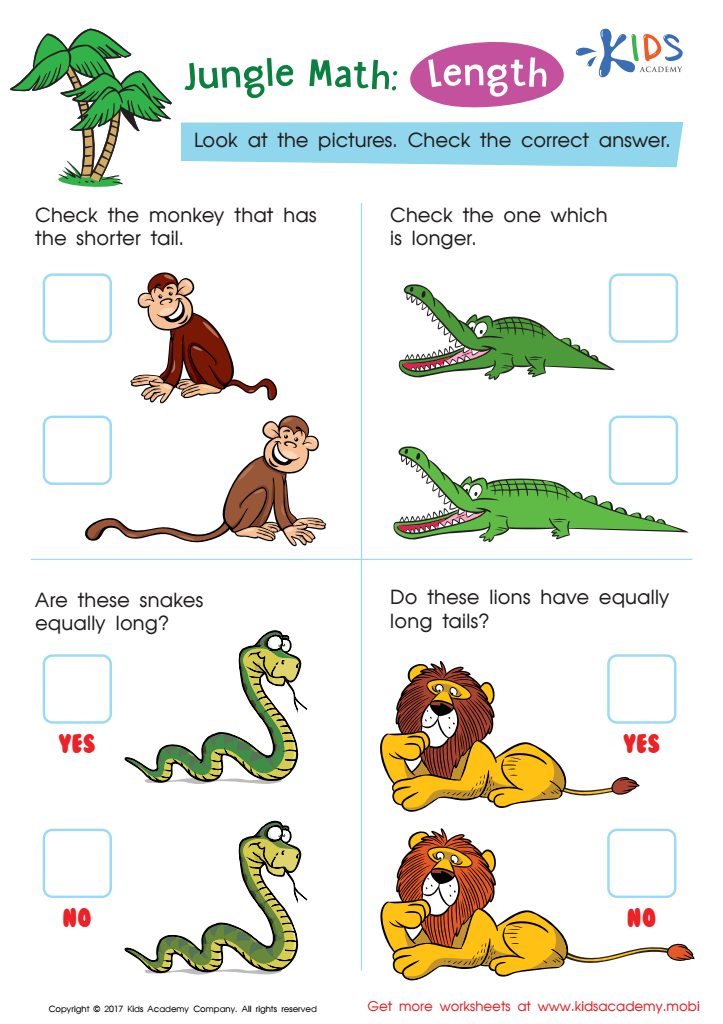

Which One Is Longer - Length Worksheet
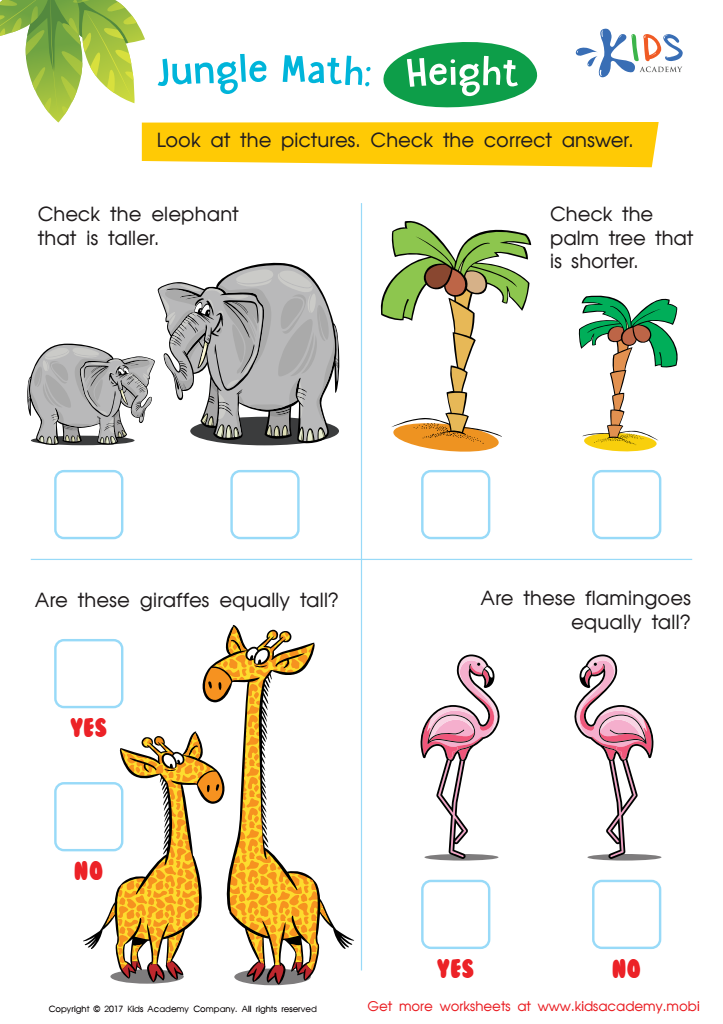

Which Is Taller Worksheet
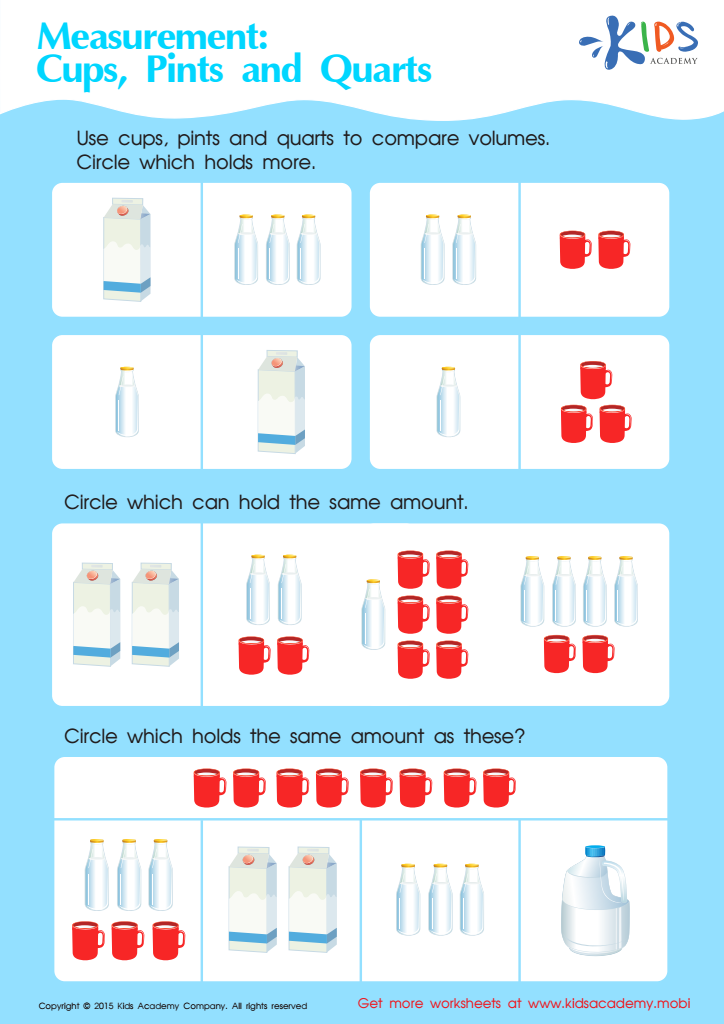

Measurement: Compare Volumes Worksheet
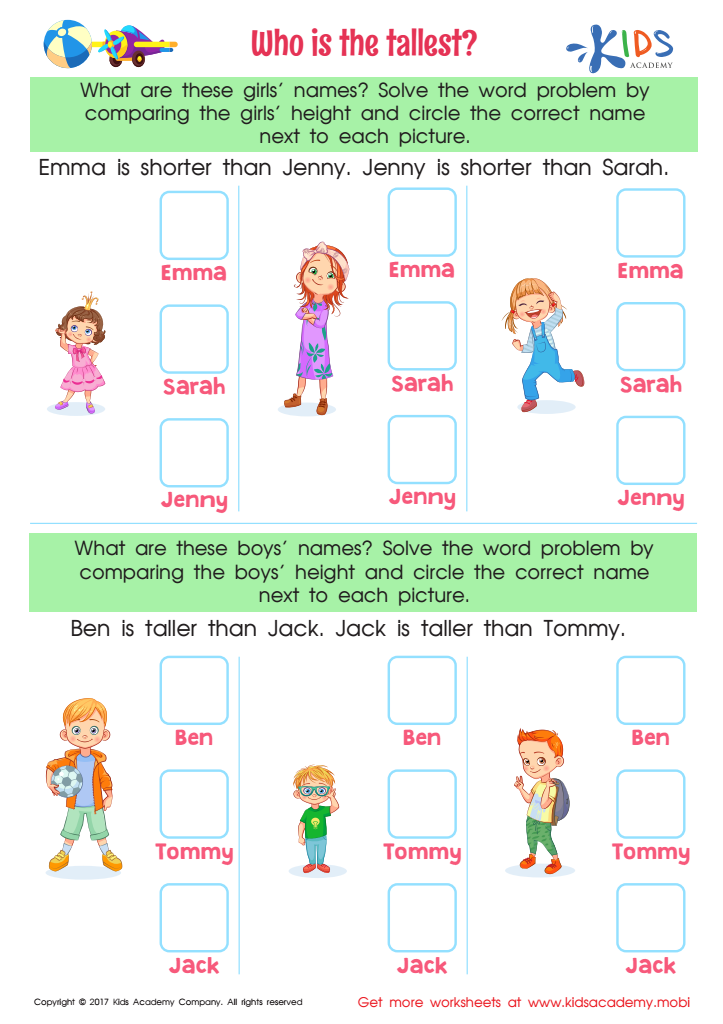

Who Tallest Printable
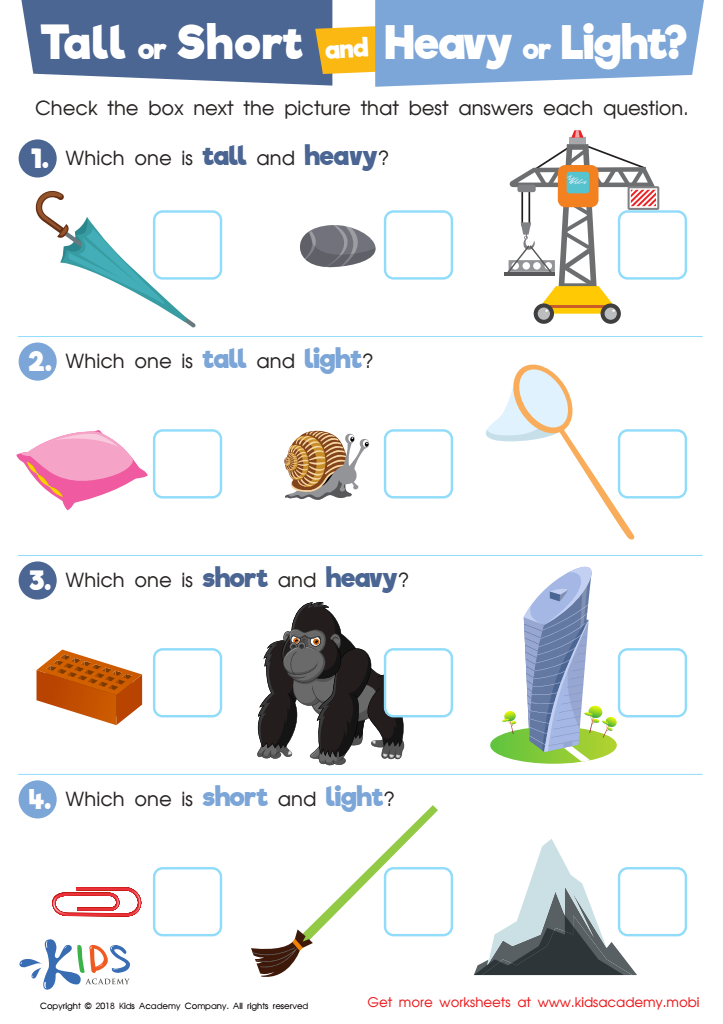

Tall or Short and Heavy or Light? Worksheet
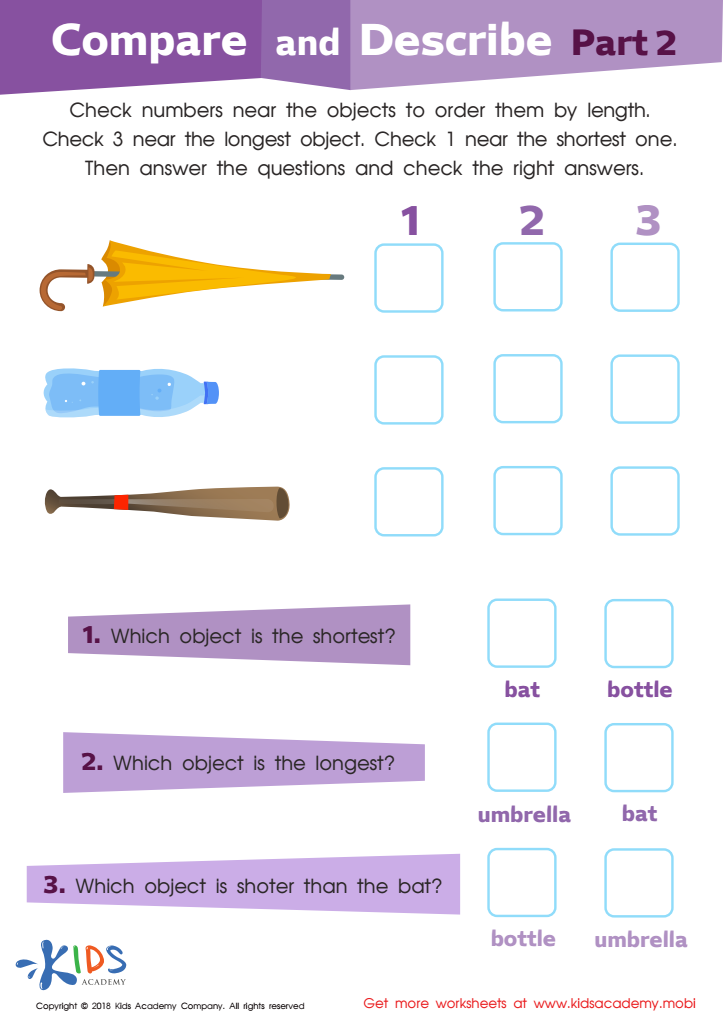

Compare and Describe: Part 2 Worksheet
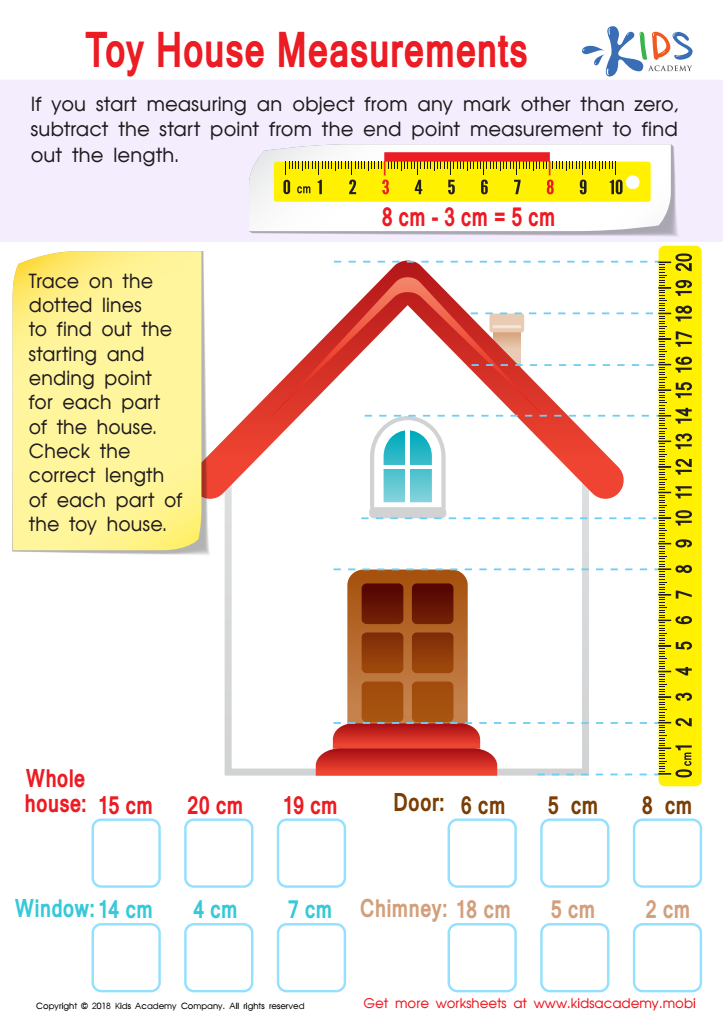

Toy House Measurements Worksheet
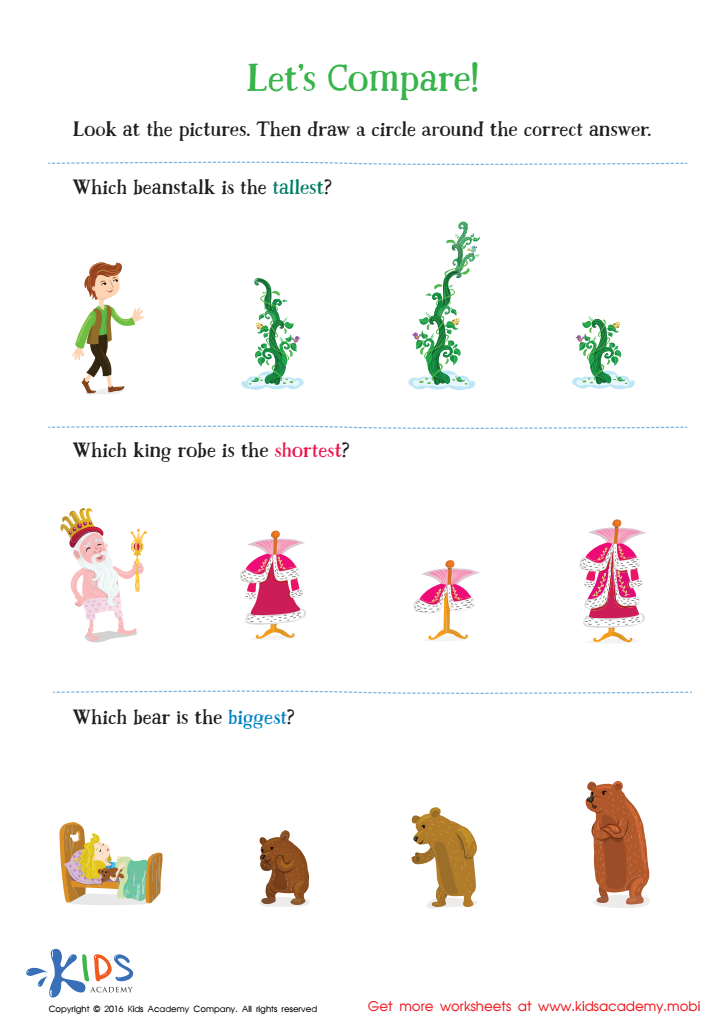

Fairy Tale Worksheet: Let's Compare
Comparing sizes and measurements is a fundamental concept in early childhood education that significantly impacts a child's cognitive development. For parents and teachers, understanding and fostering this skill in children aged 4-9 is crucial for several reasons.
First, comparing sizes helps children develop critical thinking and problem-solving skills. By learning to differentiate between more or less, longer or shorter, heavier or lighter, they engage in reasoning activities that are essential for their intellectual growth. This foundation supports later mathematical concepts which are vital in academic success.
Second, understanding measurement promotes sensory experiences and language development. When children use terms like "tall," "short," "big," and "small," they expand their vocabulary and learn to articulate their observations about the world around them. This not only enhances their communication skills but also nurtures their ability to describe and analyze situations effectively.
Lastly, measurement activities encourage collaboration and social interaction. Group tasks that involve comparing sizes foster communication and teamwork. Parents and teachers can create a supportive environment that builds confidence and fosters enthusiasm for learning. Investing time in these foundational skills prepares children for more complex mathematical concepts and supports overall academic achievement throughout their educational journey.
 Assign to My Students
Assign to My Students




















